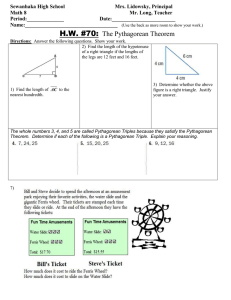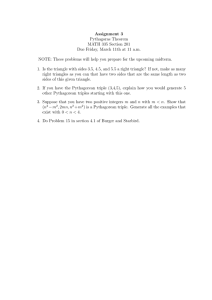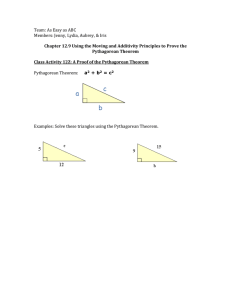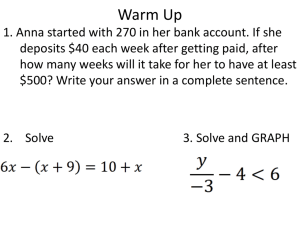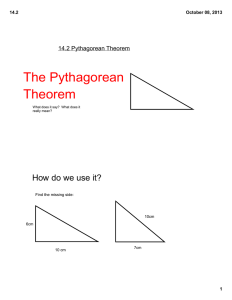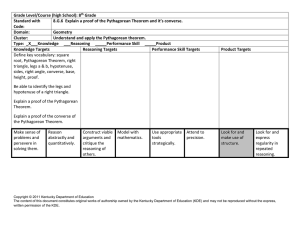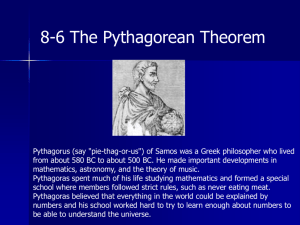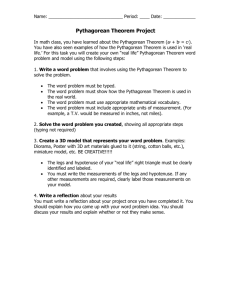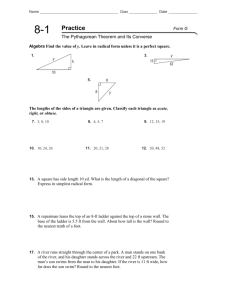The Pythagorean Theorem and the Distance Formula Activity
advertisement
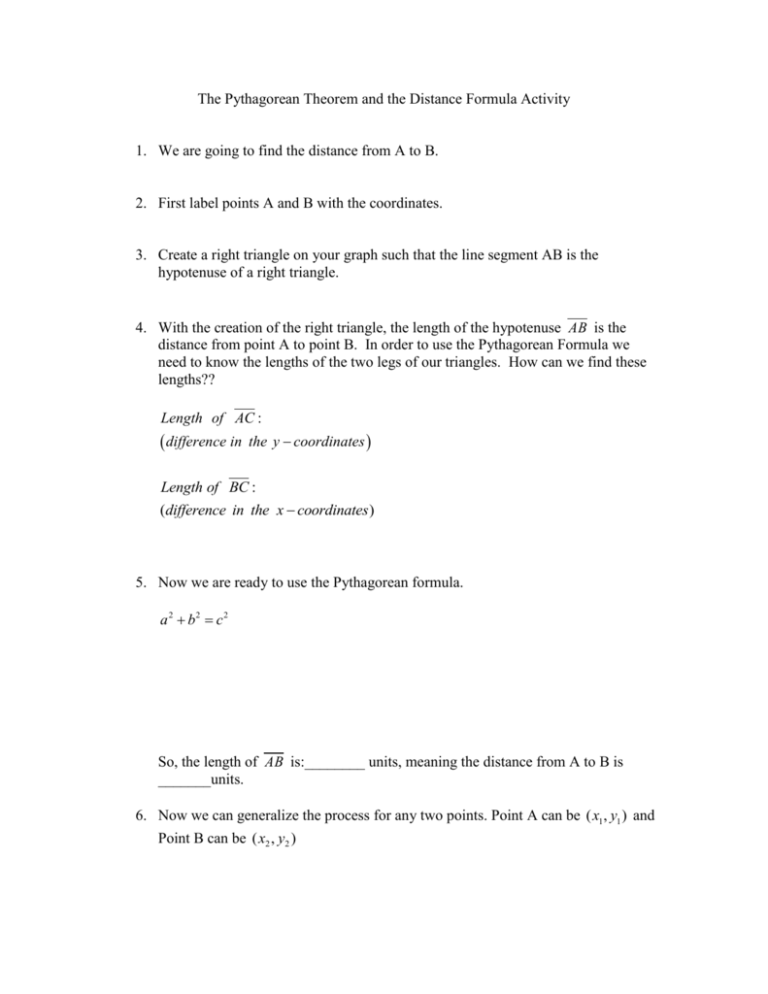
The Pythagorean Theorem and the Distance Formula Activity 1. We are going to find the distance from A to B. 2. First label points A and B with the coordinates. 3. Create a right triangle on your graph such that the line segment AB is the hypotenuse of a right triangle. 4. With the creation of the right triangle, the length of the hypotenuse AB is the distance from point A to point B. In order to use the Pythagorean Formula we need to know the lengths of the two legs of our triangles. How can we find these lengths?? Length of AC : difference in the y coordinates Length of BC : (difference in the x coordinates ) 5. Now we are ready to use the Pythagorean formula. a 2 b2 c 2 So, the length of AB is:________ units, meaning the distance from A to B is _______units. 6. Now we can generalize the process for any two points. Point A can be ( x1 , y1 ) and Point B can be ( x2 , y2 ) 7. Now if we go back to our graph we can see that when our points are identified in generic terms, the legs are still the changes in the arbitrary coordinates, or y2 y1 for the vertical length and x2 x1 for the horizontal length. Now, using the Pythagorean Theorem: a 2 b2 c 2 ( x2 x1 )2 ( y2 y1 )2 (distance)2 Now we can solve for distance by taking the square root of both sides, distance ( x2 x1 )2 ( y2 y1 )2 , which is the distance formula for any two points in the coordinate plane.
